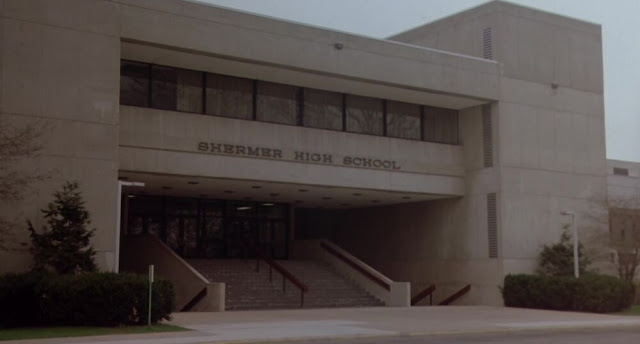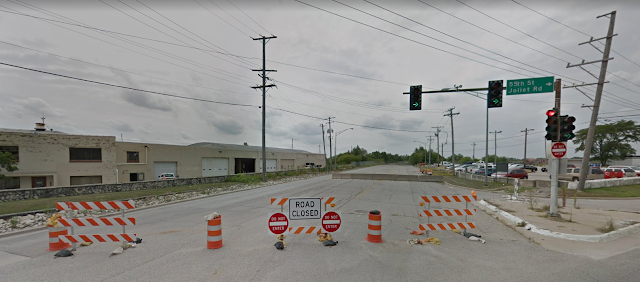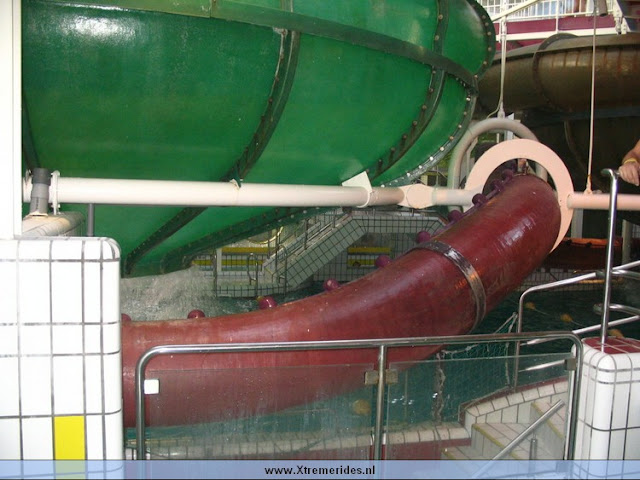Shermer, Illinois: Not Just a John Hughes Set Piece
Filmmaker John Hughes made a number of iconic movies in the 1980's, such as Planes Trains & Automobiles, and Ferris Buellers Day Off, two of my all time personal favorites.
 |
| Shermer High School from The Breakfast Club. The building once housed Maine North High School. It still stands and is owned as use for offices (and kept in terrible shape) by the State of Illinois. |
As Jay and Silent Bob would find out (link is NOT for children) in Dogma, there is no Shermer in Illinois. That being said however, there are numerous real-life references from where Hughes likely took inspiration for the town, including its former name.
Shermer is largely based on the Northbrook, Illinois, which was originally named Shermerville. It was, and remains, a stop on the Milwaukee Road, now known as Northbrook Station on Metra's Milwaukee District-North Line. The tracks dates back to 1872 with the station being built six years later. It was originally named just Shermer, but it was renamed to Shermerville in 1882.
 |
There may not have been a Shermer, IL, but Shermer Rd is indeed named after an old town in the area. Shermerville was the original name of what is now Northbrook station. |
 |
"May 2, 1956: The scene of a train accident that killed Rosemary Pohlmeier, who was traveling east on Shermer Road. Her car was caught between the gates when the Milwaukee-bound train struck." — Kaste / Chicago Tribune, Sept. 16, 2014 |
The town changed its name to Northbrook in 1923, as residents felt the name had a bad reputation. This had geography to thank. Many Chicagoans would take the train to Shermerville to enjoy the bars and saloons of the town, and if they missed the last train home, would take residence in a nearby park, "giving the town a reputation as a haven for drunks". (Chicago Tribune)
 |
"Feb. 22, 1961: St. Peter's Evangelical Reformed Church, at Willow and Shermer Roads, just seconds before the steeple collapsed and destroyed the church." — Ed Smith / Chicago Tribune, Sept. 16, 2014 |
Sadly, Hughes passed away in 2009, so there won't be a history written of the fictional place, at least not by him, but Shermer as a location for his films seemed to disappear after 1990's Home Alone.
There is still one remnant of the name Shermer that is quite visible; Shermer Road runs through Northbrook today, running between IL-68/Dundee Road and IL-43/Waukegan Road, with a section of the road removed for the Naval Air Station Glenview in the early 1920's, which later became a golf club after its closure. Glenview is just south of Northbrook.
Thanks as always for reading!



Comments
Post a Comment